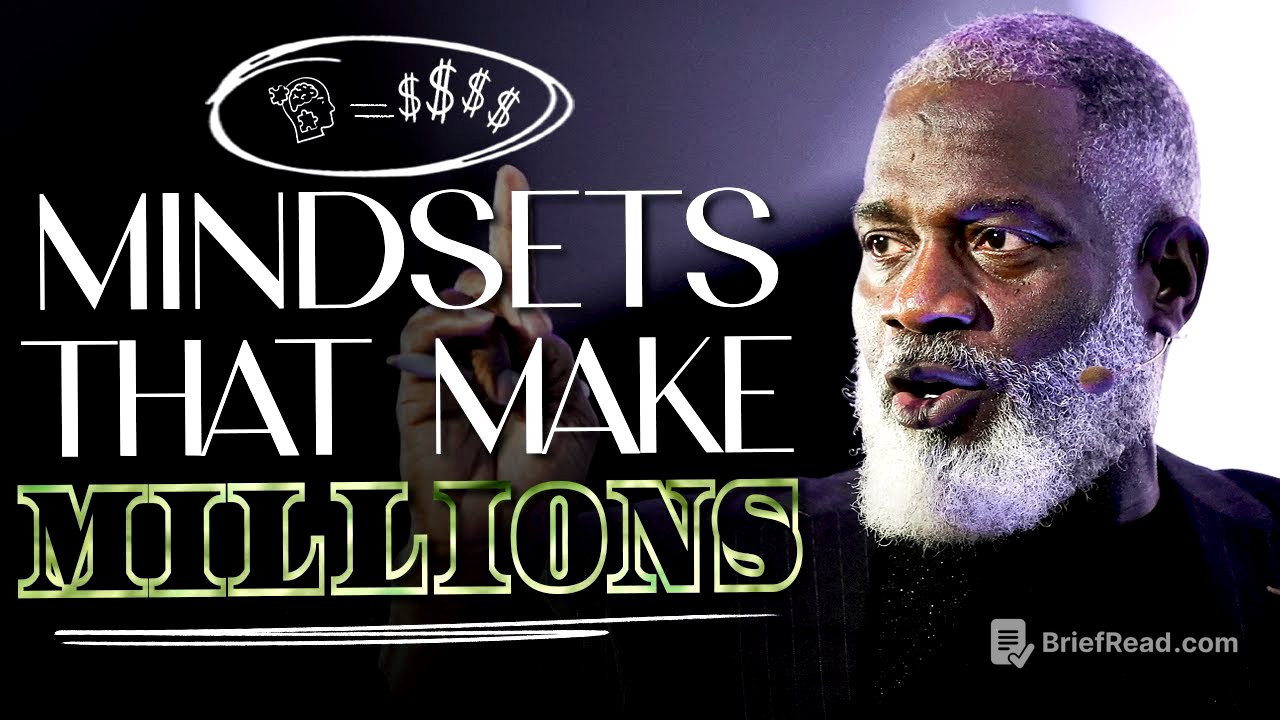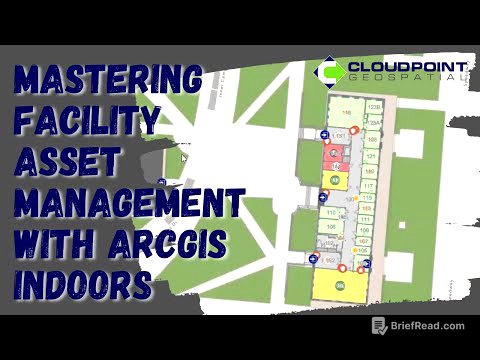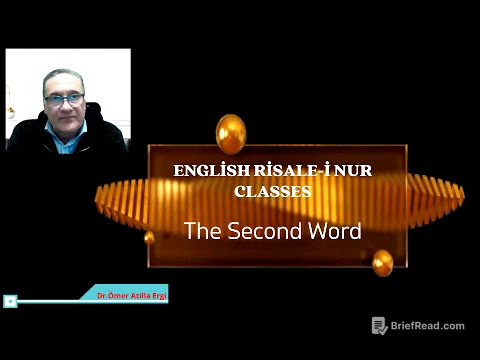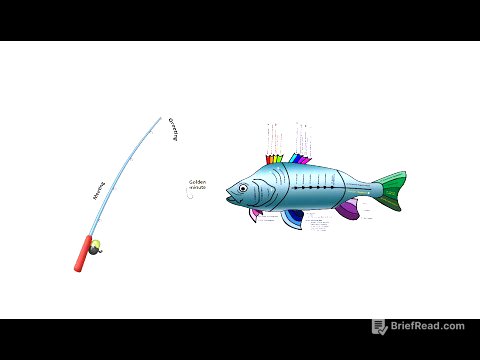TLDR;
Myron Golden shares seven mindset shifts that have significantly contributed to his financial success, emphasizing that adopting these perspectives can lead to substantial improvements in one's life. These shifts challenge conventional thinking and require action, not just awareness. The core principles include understanding the creative power within each individual, the importance of time over money, and the strategic approach to wealth creation through value levels and leveraging expenses.
- Be, Do, Have: Prioritize becoming the person who can achieve goals, which in turn influences actions and outcomes.
- Four Levels of Value: Focus on activities that create high value, such as communication and imagination, rather than just implementation.
- Time vs. Money: Value time more than money, understanding that true wealth lies in leveraging time effectively.
- Turn Expenses into Profit Centers: Transform liabilities into opportunities for income generation.
Be, Do, Have [1:28]
The most transformative mindset shift is understanding and applying the "Be, Do, Have" principle. This concept, rooted in Genesis 1, highlights God's creative nature and our creation in His image, suggesting we are inherently designed to create. God's first command to man was to "be fruitful," indicating that we should produce externally based on the creativity within us. This involves not just being creative but also multiplying and replenishing the earth, which requires intention and energy to overcome entropy. The key is to focus on becoming the person who can achieve the desired outcomes, which will then influence actions and ultimately lead to having those outcomes.
Four Levels of Value [22:44]
The four levels of value are implementation, unification, communication, and imagination. Implementation, using physical labor, is the lowest level, while unification involves management skills. Wealth creation truly begins with communication, using one's voice to influence and create cash flow. The highest level is imagination, which involves envisioning and creating new possibilities. Shifting focus from lower-value activities to communication and imagination is crucial for wealth creation.
It's Easier to Make a Lot of Money in a Short Period of Time [28:10]
It's easier to make a lot of money in a short period than a little money over a long period. This mindset requires a shift in belief and a decision to focus on high-impact activities. The transformation involves awareness, intention, decision, discipline, recognition, and celebration. By deciding to avoid hard ways to make little money, one opens up opportunities for more significant, faster income generation.
Nothing is Expensive [31:49]
Nothing is inherently expensive; things simply cost what they cost. The issue is often one's ability to afford something, which can be addressed by changing one's mindset and habits. Instead of focusing on how to get something for less, focus on how to afford it. This shift involves asking open-ended questions like, "How can I afford this?" rather than making dead-end statements like, "I can't afford it."
Price's Law [40:47]
Price's Law states that 50% of the production in any domain is produced by the square root of the number of people in that domain. This means that in any group, a small number of individuals are responsible for a large portion of the output. This principle highlights that mediocrity scales exponentially, while excellence scales incrementally. To succeed, one must focus on becoming one of the "fantastic few" rather than one of the "mediocre many" by identifying and focusing on the activities that produce the most significant results.
Calculate the Cost of Inaction [51:45]
It's essential to calculate the cost of inaction as well as the cost of action. Often, people focus on the expense of taking a step but fail to consider the opportunities they miss by not acting. The cost of inaction can be far greater than the cost of action, leading to missed opportunities and potential future gains.
Turn Expenses into Profit Centers [56:09]
Every expense can potentially be turned into a profit center. By asking the question, "How can I turn this expense into a profit center?" one can find creative ways to generate income from everyday expenditures. This mindset encourages entrepreneurs to find "anyway offers," turning things they already do into opportunities for profit.









